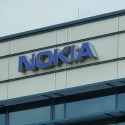Nokia Lands Non-Telco SDN Deal in China
Finnish vendor is to supply its SDN-based virtualized services platform to China's second-largest property insurance company.

Nokia has landed a strategically important non-telco customer in the perennially hard-to-crack Chinese market through its Nuage Networks software-defined networks (SDN) business.
China Pacific Insurance Company (CPIC) is to use Nuage Networks technology at two data centers as it looks to reduce IT costs and provide a boost to research and development activities, said Nokia in a statement.
The deal provides a welcome sign of Nokia's continued progress outside the slow-growing telco market: Last year, the Finnish vendor said it would pursue opportunities in enterprise markets where it believes there is strong demand for networking products and services.
While the financial services sector is not one of the industries it is specifically targeting under its new strategy, Nokia Corp. (NYSE: NOK) hailed the CPIC deal as evidence of its growing clout with organizations that are not telcos.
Nokia executives will also be delighted to have whisked another Chinese deal from under the noses of local rivals Huawei Technologies Co. Ltd. and ZTE Corp. (Shenzhen: 000063; Hong Kong: 0763), both of which are also targeting enterprise customers and investing heavily in the development of SDN and network functions virtualization technologies.
"Working with a top insurer like CPIC serves as an excellent reference for the broader industry, and we see this as an opportunity to win more large enterprise projects in China, continuing Nokia's push into vertical markets beyond the telecom space," said Jin Jian, the head of the enterprise and public sector unit at Nokia Shanghai Bell, in a company statement.
Under the deal announced today, CPIC will use Nuage's virtualized services platform (VSP) at one data center to support IT needs across 82 different branch offices, which have until now relied on what Nokia describes as "dispersed IT systems." The VSP will be used at another data center for R&D purposes.
Want to know more about the emerging SDN market? Check out our dedicated SDN content channel here on Light Reading.
Nokia's recent results indicate just why the enterprise-sector expansion has become such a priority for the Finnish supplier.
The IP routing group in which Nuage sits reported an 11% year-on-year fall in sales in the April-to-June quarter, to about €1.28 billion ($1.5 billion), with Nokia partly blaming a decline in the communications service provider market for the setback.
It has previously indicated that it expects industry sales in its main addressable market to increase at a compound annual growth rate (CAGR) of just 1% between 2016 and 2021. The enterprise markets it is targeting are expected to grow at a CAGR of 13% over the same period. (See Nokia's Leprince Hails Enterprise Growth.)
Nokia still generates the bulk of its sales in Europe and North America but has a solid presence in China thanks to Nokia Shanghai Bell, a joint venture with a local company called China Huaxin that took formal shape earlier this year.
The business combines Nokia's China assets with the former Alcatel-Lucent Shanghai Bell, which Nokia acquired as part of its €15.6 billion ($18.4 billion, at today's exchange rate) takeover of Alcatel-Lucent last year. Nokia controls 50% plus one share of Nokia Shanghai Bell, with China Huaxin owning the remainder.
Yet despite having a local partner, Nokia witnessed a 7% year-on-year drop in revenues from China in the April-to-June quarter, to €627 million ($738 million), amid spending cuts by China's big three operators and fierce competition from Huawei and ZTE.
China accounted for about 13% of Nokia's network sales in the April-to-June quarter.
Despite the slowdown, Nokia CEO Rajeev Suri has said he is seeing "catalysts" in China that point to "an acceleration of 5G and the commencement of meaningful rollouts in 2019."
Moreover, CPIC is not the only non-telco customer that Nokia has landed in China this year. It is also building a 4G network for the Shanghai Oriental Pearl Group that will support a range of smart city and public safety applications.
— Iain Morris, News Editor, Light Reading
About the Author(s)
You May Also Like




_International_Software_Products.jpeg?width=300&auto=webp&quality=80&disable=upscale)







